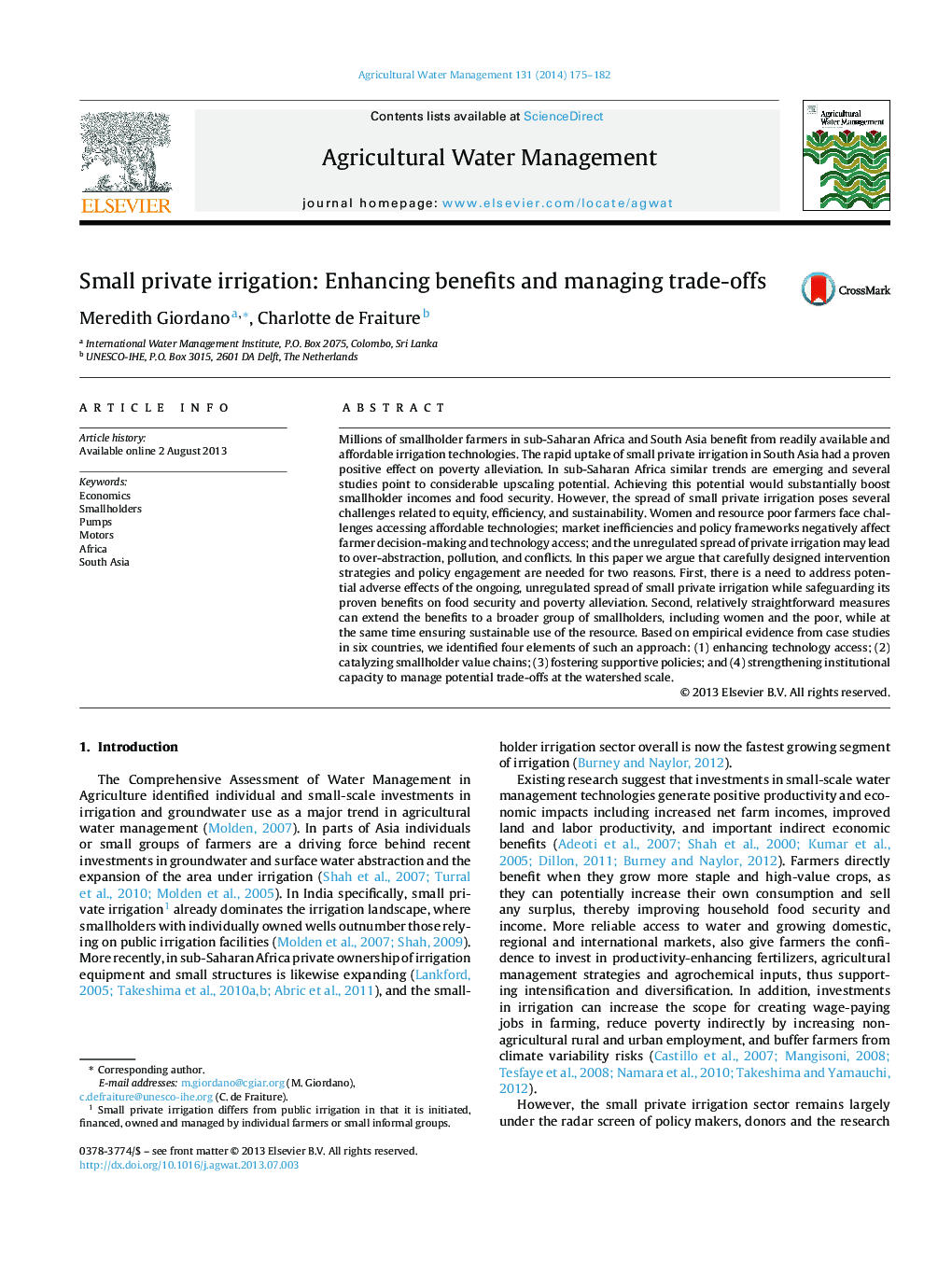| کد مقاله | کد نشریه | سال انتشار | مقاله انگلیسی | نسخه تمام متن |
|---|---|---|---|---|
| 6364020 | 1622948 | 2014 | 8 صفحه PDF | دانلود رایگان |
- Small private irrigation has significant, positive effects on rural incomes and livelihoods.
- Significant potential exists for further growth in the sector.
- Supporting small private irrigation leverages existing farmer investments.
- However, the sector poses several challenges related to equity, efficiency, and sustainability.
- With appropriate support, the sector can realize its poverty reduction potential while minimizing potentially negative externalities.
Millions of smallholder farmers in sub-Saharan Africa and South Asia benefit from readily available and affordable irrigation technologies. The rapid uptake of small private irrigation in South Asia had a proven positive effect on poverty alleviation. In sub-Saharan Africa similar trends are emerging and several studies point to considerable upscaling potential. Achieving this potential would substantially boost smallholder incomes and food security. However, the spread of small private irrigation poses several challenges related to equity, efficiency, and sustainability. Women and resource poor farmers face challenges accessing affordable technologies; market inefficiencies and policy frameworks negatively affect farmer decision-making and technology access; and the unregulated spread of private irrigation may lead to over-abstraction, pollution, and conflicts. In this paper we argue that carefully designed intervention strategies and policy engagement are needed for two reasons. First, there is a need to address potential adverse effects of the ongoing, unregulated spread of small private irrigation while safeguarding its proven benefits on food security and poverty alleviation. Second, relatively straightforward measures can extend the benefits to a broader group of smallholders, including women and the poor, while at the same time ensuring sustainable use of the resource. Based on empirical evidence from case studies in six countries, we identified four elements of such an approach: (1) enhancing technology access; (2) catalyzing smallholder value chains; (3) fostering supportive policies; and (4) strengthening institutional capacity to manage potential trade-offs at the watershed scale.
Journal: Agricultural Water Management - Volume 131, 1 January 2014, Pages 175-182
